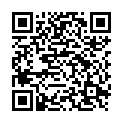|
|
|
| Module code: FT04.4 |
|
|
2V+2U (4 hours per week) |
|
4 |
| Semester: 1 |
| Mandatory course: yes |
Language of instruction:
German |
Assessment:
Written exam 90 min.
[updated 30.09.2020]
|
FT04.4 (P242-0093, P242-0094) Automotive Engineering, Bachelor, ASPO 01.10.2015
, semester 1, mandatory course
FT04.4 (P242-0093, P242-0094) Automotive Engineering, Bachelor, ASPO 01.04.2016
, semester 1, mandatory course
FT04.4 (P242-0093, P242-0094) Automotive Engineering, Bachelor, ASPO 01.10.2019
, semester 1, mandatory course
|
60 class hours (= 45 clock hours) over a 15-week period.
The total student study time is 120 hours (equivalent to 4 ECTS credits).
There are therefore 75 hours available for class preparation and follow-up work and exam preparation.
|
Recommended prerequisites (modules):
None.
|
Recommended as prerequisite for:
FT16.1 Vehicle Superstructures and Lightweight Construction
FT19.1 Passive Vehicle Safety
FT26.1 Project Work 1
FT30 Engineering Project in English
[updated 24.01.2016]
|
Module coordinator:
Prof. Dr. Moritz Habschied |
Lecturer:
Prof. Dr. Walter Calles
[updated 31.07.2015]
|
Learning outcomes:
After successfully completing this course, students will be familiar with the fundamentals of mechanical material behavior and its characteristic values and will be able to apply them to static and dynamic loads.
- They will be able to determine the characteristic values of a tensile test including those of the plastic behavior, interpret them and apply them to simple automotive components.
- They will be able to trace the properties of a material back to its microstructure and thus, influence the properties by changing the structure.
- They will be familiar with the microstructures in the iron-carbon phase diagram and will be able to select appropriate annealing and hardening processes with the aid of time temperature transformation diagrams.
- They will be able to select suitable surface treatment processes with regard to the materials being used.
- They will be able to select suitable materials for various automotive applications.
Within the framework of a final interdisciplinary project (FT04.2, FT04.3, FT04.4 and FT04.5), the students must design a small component in a team after determining loads, then dimension it in accordance with the loads and stresses and produce a production drawing in accordance with the standards. In this way, students will become familiar with the interaction of sub-disciplines and important interfaces and be able to practice running through the sequence of development steps, which they can then, in subsequent projects, independently transfer to other components.
[updated 30.09.2020]
|
Module content:
1. Basic terms: strength-deformation-breakage and tensile test
2. Brittle and ductile behavior and external influences
3. Metallurgy (crystal structure and microstructure, lattice defects and their significance for formability and strength)
4.
Working with an iron-carbon phase diagram and TTT diagrams.
5. Hardening methods and surface hardening methods
6. 4. Cast iron materials
7. High-strength steels
8. Aluminum and Magnesium materials
9. Using material databases and search engines
10. Basics of plastics
11. Correlation between material behavior and stress-related design
- Interactive lecture based on selected examples from automotive technology with exercises
[updated 30.09.2020]
|
Teaching methods/Media:
- Supervised lab exercises in small groups with quizes. Lab reports by the students.
- Transparencies with animations, schematic and real images
[updated 30.09.2020]
|
Recommended or required reading:
/1/ Bargel; Schulze: Werkstoffe
/2/ Bergmann: Werkstofftechnik Teil 1
/3/ Heine: Werkstoffprüfung
[updated 30.09.2020]
|


